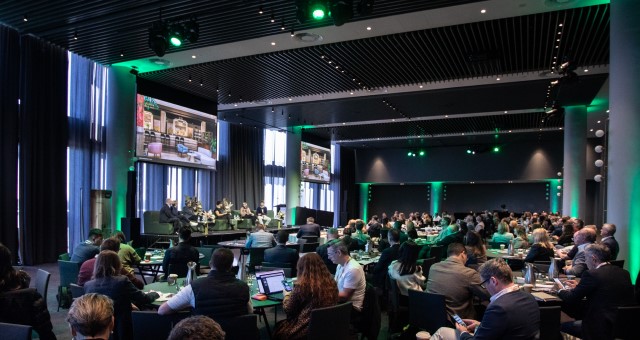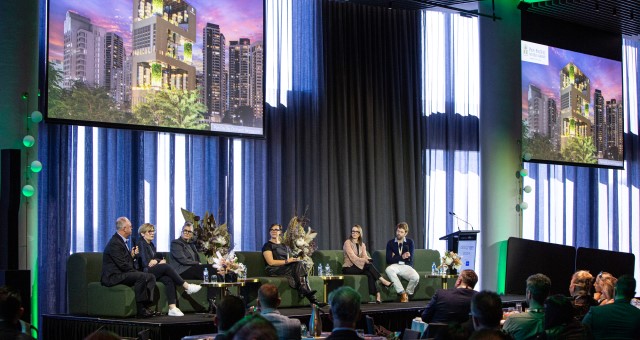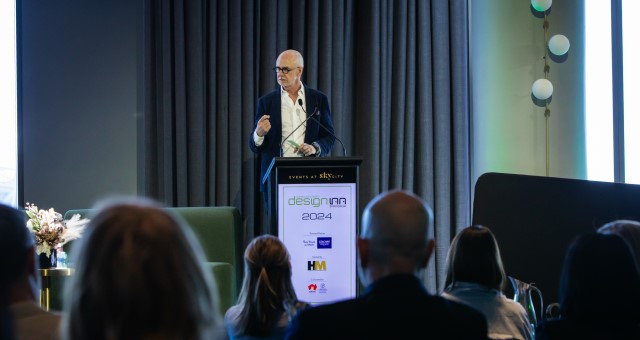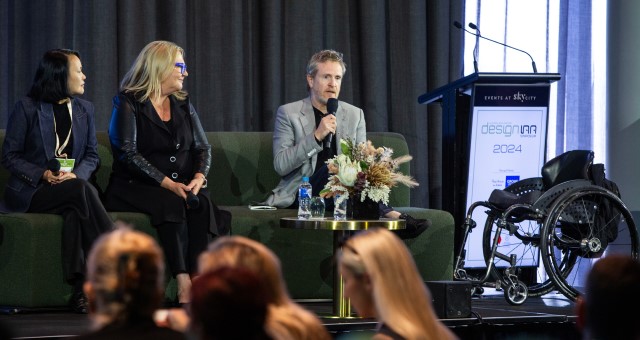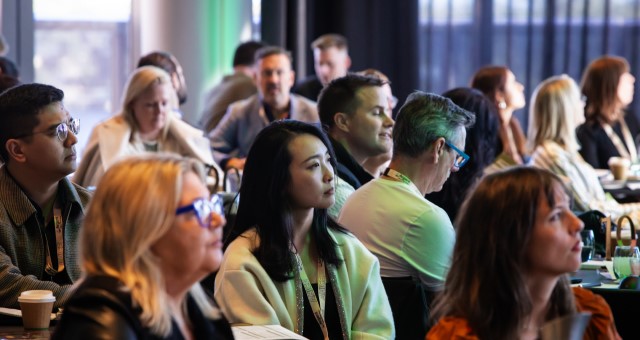The 2024 Design Inn Symposium saw a stellar cast of speakers enlightening delegates on some of the most pertinent topics in hotel design and construction.
With Adelaide, the vibrant capital of South Australia, again pulling out all stops as host city, hotel design is brought sharply into focus as the so-called City of Churches evolves into a 21st century City of Hotels, stunning developments including the conversion of the heritage GPO into a 285-room 5-star Marriott, the brand’s debut in South Australia, were under the spotlight.
Sustainability was a consistent thread throughout many of the day’s discussions, including the issue of green credentials and accreditation. Angela Biddle, Principal at Fender Katsalidis, lead a discussion asking panellists whether sustainable design is worth the cost. It became clear that meeting ESG targets went way beyond hanging towels and recycling containers.
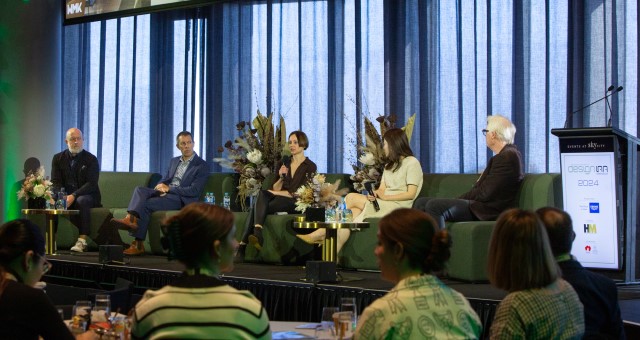
The complexity of certification, with its dizzying array (currently 120+) was also cited as a hurdle to design processes. Hilton’s Phillipa Le Roux emphasised that it was critical to establish collaboration with certifying bodies at the earliest juncture. “Get it right early in the process,” she said.
Sarah Hull of Cooper and Co. identified that social sustainability is often overlooked. “Hotels need to merge with the local precinct,” she said.
A new term was introduced to the audience by Callie van Der Merwe of COOOP in the form of ‘EnviroHacking’ and how it impacted our well-being both in the workplace and as hotel guests.
“Our primal survival instincts react to our environment in ways we often don’t consider,” van der Merwe said.
“The distinction between simple and complex shapes in design can have a profound effect on us when we’re exposed to them on a regular basis. Studies show that green spaces, for example, have a lower crime rate than stark concrete environments.”
An example that demonstrated this was when a massive high density housing estate was bulldozed because of its disastrously detrimental effects on the residents.

This school of thought was reinforced by Accor’s Damien Perrot who, in conversation with HM Editor, Ruth Hogan, discussed biophilic design and incorporating local elements into both the form and function of the property.
Another recurring theme was the importance of accessibility in hotel design.
Ryan Smith, Principle at The Access Agency, delivered an impassioned presentation underscored by the ethos that accessible hotel rooms need not be ugly while conforming to minimum regulatory standards.
“Hotels need to consider accessibility at the initial design process,” Smith said.
“Accessibility can be both functional and beautiful and should consider the wide diversity of potential users, not just those in a standard wheelchair. We need to feel part of the community. Accessibility and inclusivity should be part of your brand.”
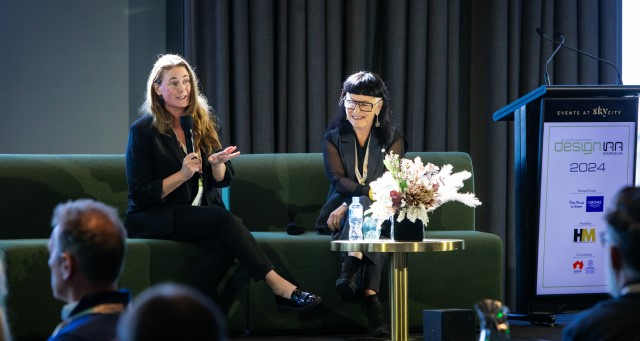
It was clear that the new generation of hotel guests are scrutinising hotels’ credentials at every level and that hotel owners, operators, managers, investors and designers need to be across all elements of ESG and understand the depth of that concept extends way beyond simple window-dressing.
The insightful conference closed with the announcement of the Australasia-Pacific Hotel Design Awards, before delegates took off around the city for hotel tours of the soon-to-open Crowne Plaza Mawson Lakes, Mantra Tonsley Adelaide, EVT’s Hotel Alba, Peppers Waymouth Adelaide and a pop-up prototype of Hilton Garden Inn.
Read about all the winners and highly commended in the 2024 Australasia-Pacific Hotel Design Awards.

